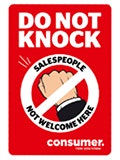We’ve come a long way since 1959. But our stock in trade hasn’t changed – whether it’s exposing dodgy dealers or giving you the lowdown on products that go the distance.
December 2010: Swimming in it

Our review of water quality named the beaches and rivers where you wouldn’t want to take a dip over summer. Out of 445 monitored swimming spots, just 20% were rated “very good”. Twenty-six percent got a “poor” or “very poor” grade because of the risk they could make you sick. The state of the country’s waterways remains a major problem. In our 2018 consumer survey, 77% of Kiwis named water quality at rivers and beaches as their top concern.
March 2012: Extended warranty rip-offs

“If it’s not covered by any warranty, we can’t make any guarantees.” That was the bogus advice our mystery shopper got from a Bond & Bond sales rep eager to sell her an extended warranty. Big-box retailers were all too happy to pump up the virtues of their warranties but our advice was to steer clear. If you’re buying a product for personal use, you’re already covered by the Consumer Guarantees Act.
December 2013: Online protections
Protections in the Consumer Guarantees Act are finally extended to products bought from auction websites such as Trade Me. Traders selling on these sites also have to tell you they’re “in trade” so you know who you’re dealing with.
November 2014: Not welcome here

They kept coming – complaints about dodgy salespeople door-stepping vulnerable consumers and pressuring them to buy products they didn’t want and couldn’t afford. To put an end to it, we launched our Do Not Knock campaign providing free “Do Not Knock” stickers to tell salespeople they weren’t welcome. Law changes are now in the wings that will mean any door-to-door seller who ignores a sticker will be committing an offence and could end up in court. To date, we’ve distributed 550,000 stickers to consumers.
March 2015: Playing fair
17 March 2015 was a red-letter day for consumers. The date marked the start of a long-awaited ban on unfair terms in consumer contracts. We hailed it as one of the most significant changes to consumer law in the last 20 years. It means you don’t have to accept the unfair conditions companies try to impose when you buy goods or services.
September 2016: Hidden cost of gift cards

Major retailers ditched their gift card expiry dates after we launched our "Drop the Dates" campaign. Gift cards are the go-to option for last-minute shopping dilemmas. But strict expiry dates mean many people get stuck with cards they can’t use. Based on the typical gift card value, we estimated consumers could be losing $10 million annually!
August 2017: Spotlight on sneaky fees
We presented a 10,000-signature petition to end sneaky fees to the Minister of Commerce and Consumer Affairs. These fees – often disguised as "booking fees" or "service fees" – can add anything from a few dollars to more than $50 to the advertised price. We called for all-inclusive pricing rules to make retailers disclose the full costs upfront and protect consumers from hidden fees.
November 2018: Labelling rules finally arrive

After 10 years of campaigning, requirements for country-of-origin labelling for fruit and vege made it on to the statute books. Labelling rules are expected to be place in 2020.
December 2018: Read before burning
Only four of 10 sunscreens in our annual test provided the SPF they claimed. We’re continuing to campaign for a mandatory sunscreen standard to help ensure consumers can have confidence these products measure up.
June 2019: Cleaning up the insurance market

Consumers are paying more than ever for insurance. But they’re not getting a fair deal. Our investigation found as many as one in four Kiwis have had a problem with their insurer. The most common complaint was having a claim unreasonably declined. Pressure to accept a settlement with their insurer was reported by one in 10 of those who experienced a problem. Our “Fair Insurance” campaign aims to clean up the market and make it work better for consumers.